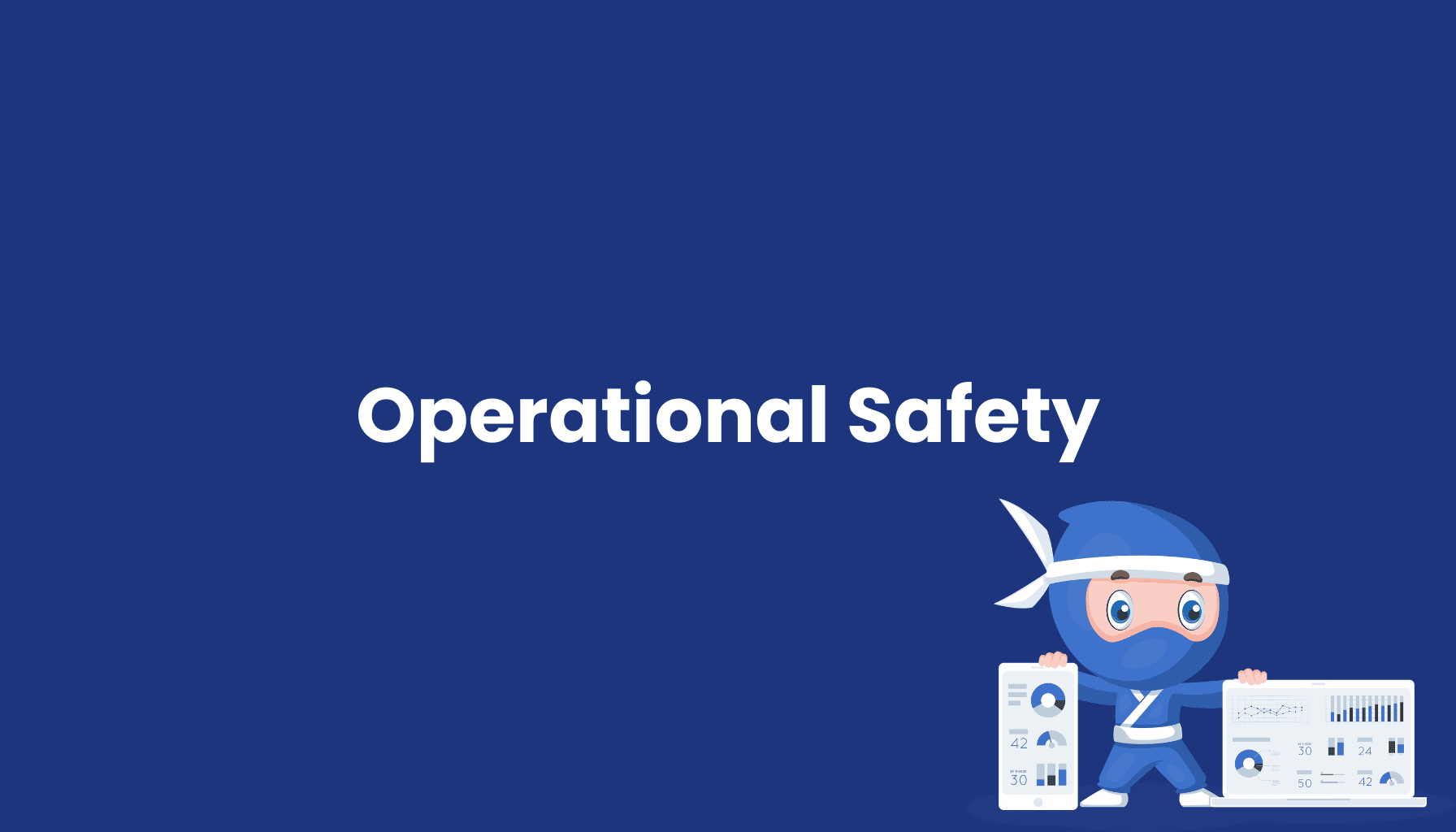Operational Safety

What is Operational Safety?
Operational safety ensures that all equipment, systems, and machinery within a company are in safe, optimal working condition. This includes implementing technical and organizational measures to protect employees and mitigate potential hazards in daily operations. Operational safety is crucial for a company’s efficiency and productivity, as it ensures not only the safety of staff but also the smooth operation of production processes. In Germany, operational safety is governed by the Occupational Safety Ordinance (BetrSichV) and Technical Rules for Operational Safety (TRBS).
Importance of Operational Safety in Industry
In manufacturing, operational safety is essential as machines and systems can pose significant risks if not properly maintained or operated. The Occupational Safety Ordinance mandates that companies adopt risk-reduction measures and keep all operational equipment in safe condition. This includes regular maintenance, inspections, and safety checks to ensure machines are used safely and align with technical regulations.
Key Regulations for Operational Safety
The Occupational Safety Ordinance and Technical Rules for Operational Safety (TRBS) provide the regulatory framework for ensuring safety in workplaces. Key requirements include:
- Provision and Use of Equipment: Machines and equipment must meet safety standards and be safe to operate.
- Risk Assessment: Employers are required to assess potential hazards when using equipment and take appropriate risk-reduction measures.
- Regular Inspections: Machines and systems must undergo regular safety checks to prevent operational failures and minimize risks.
Measures to Enhance Operational Safety
Companies implement targeted safety measures to ensure operational safety:
- Risk Assessment: Systematic identification and analysis of potential hazards to establish adequate protection measures.
- Training and Instruction: Regular training for employees on safe machine handling minimizes accident risks and supports workplace safety.
- Maintenance and Inspection Planning: Scheduled maintenance and inspections help ensure equipment functionality and prevent unexpected breakdowns.
- Emergency Management: Development of emergency plans enables prompt, coordinated responses in case of critical incidents.
Challenges of Ensuring Operational Safety
Maintaining operational safety presents several challenges:
- Technical Complexity: Modern machines and systems are often complex, which increases monitoring and maintenance requirements.
- Regulatory Compliance: Continuous updates to Technical Rules for Operational Safety necessitate frequent equipment adjustments.
- Cost Considerations: Comprehensive safety measures and regular maintenance can be costly but are crucial for long-term efficiency and security.





